You can feel it the second you set foot in any office space or corporate headquarters. In every place of business, there is that intangible atmosphere; an inescapable, all-encompassing emotion, better described as the corporate culture, that permeates all aspects of life within the organisation.
The question facing business leaders at every turn is this: How can I ensure that the culture of my company is one that encourages happiness, growth, creativity, and longevity?
The answer, as many businesses are finding out, is a program known as The Oranges Toolkit.
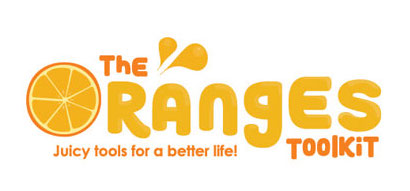
What happens when negativity becomes optimism?
Negativity in the workplace can have effects far beyond the relatively simple experience of a negative emotion. When employees are happy and engaged in their work—when they believe in what the company does, what they are doing to help the company achieve its goals, and in the things they do to help their clients get what they want and need—a myriad of positive outcomes come to light.
Seventy percent fewer safety incidents, an over-40 percent reduction in absenteeism, and an over-20 percent increase in profitability are just some of the benefits revealed in this workplace study conducted by the Langley Group.
How can the Oranges Toolkit help?
The Oranges Toolkit helps your business experience these dramatic rises. The name itself, ORANGES, is an acronym. It stands for Optimism, Resilience, Attitude, Now, Gratitude, Energy, and Strengths.
The program is based in positive psychology, neuroscience, and emotional intelligence, using research conducted at leading academic institutions. The Oranges Toolkit pulls all of this together into a measurable tool that businesses can use to turn their corporate culture around.
The ADSSI HomeLiving Australia Case Study
For evidence of how ORANGES works, and how it can work for you, we turn to a case study, undertaken at ADSSI HomeLiving Australia.
Run out of Tuggerah on the Central Coast, a hundred kilometres north of Sydney, ADSSI HomeLiving Australia provides home-based care for older people and people living with a disability, managing a staff of approximately 150, and a client base of approximately 16,000. Jenni Allan, an accountant by background, has been CEO for the past eight years.
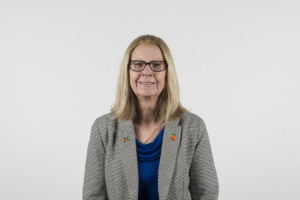
CEO of AHLA, Jenni Allan
“I’m actually very much a people person,” Jenni says when asked to describe herself. “I love the fact I’m using the skills I have to benefit the community, to make an absolutely outstanding difference to people’s lives.”
And when it comes to her views on leadership?
“My philosophy on leadership is really one of service. I’m here to serve my staff so that they can do the very best job that they can do for our clients,” Jenni explained. But she doesn’t just do this for her clients; she does this for her employees. “People who are professionally satisfied and enjoy coming to work in a service industry will also go to great lengths to benefit the clients.”
Why did ADSSI HomeLiving Australia need a resilience program?
Those who work with ADSSI’s clients need to give top-notch, compassionate care for a host of clients who themselves face a litany of challenges based on age, illness, and injury. Factors such as emotional fatigue become an issue for the carers.
This is why maintaining employee resilience, a key component of the ORANGES Toolkit, is a problem ADSSI has come up against before.
People and Culture Manager Colin Henson explains.
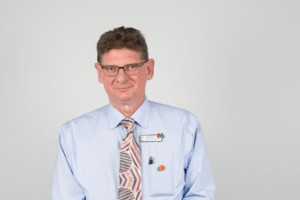
People and Culture Manager of AHLA, Colin Henson
“It’s a people industry,” he says, “and you need a lot of energy and strength and resilience to turn up at a client’s home day after day after day and be the person that client needs you to be. Which is positive and future focused and solution focused. So, as you’d imagine, the reason we exist is because our clients have a need and their lives can be really tough.”
It is a challenging field, draining both physically and mentally. Being able to stay well emotionally, mentally and physically means understanding how to deal with difficult circumstances.
“Our staff members are doing very personal things in the clients home,” Colin explained. “They’re cooking meals and cleaning. They do personal care, which is showering and toileting at times. You get to know the client, and the client gets to know us and trust us. Sometimes when we see those people deteriorate that’s awfully hard.”
External change is also a factor, says Jenni. In the last few years, there has been enormous change in the aged and disability care sectors. It has required service providers to change their business models significantly.
But that change is not something they can influence or control.
“It’s a big ask,” she says, “for people, my staff, to cope with that change that’s being externally driven. And if we don’t cope we won’t survive, so it’s not a matter of choice. ADSSI has to change its role and see benefits within what’s happening within the community, or we won’t be here another 30 years.”
And so, both Jenni and Colin were looking for a means by which they could make sure that the challenges inherit to their industry and those brought on by external factors which might detract from company morale and do damage to their corporate culture were nipped in the bud, as it were. In the course of her search for a solution, Jenni came across the ORANGES program, and felt and immediately drawn to it.
How ADSSI HomeLiving Australia chose ORANGES
While ORANGES was introduced to ADSSI, the organisation didn’t simply jump into it. Both Jenni and Colin looked into it and make smart decisions about what to do next, before deciding it was right for them.
“We found out that it was based on analytical data and had the research to back the programme,” Jenni said of what she and Colin found after looking into ORANGES. “I liked the way it was an acronym, and I liked what the acronym stood for. And the more I delved into it, I thought, ‘Gee, optimism and resilience and living in the moment are all things that I personally think can lead us to better lives ourselves, professionally and personally.’”
Jenni and Colin attended an ORANGES program themselves before deciding to implement it at ADSSI.
When they did decide to bring it into the organisation, they didn’t just immediately roll it out company-wide, however. Change can be difficult, even when it’s positive.
So, they did it in stages — starting with their biggest champions.
“I got the ORANGES facilitator to come back and do a bit of a refresher with a few of us,” says Jenni. “And we formed a subcommittee. I asked for volunteers, people to work with me. We meet regularly, and we have an action plan to roll this out and embed it in our culture.”
Colin explained how they chose the people who would participate.
“We were very selective,” he explained. “What we said to them was, this is a way forward for us. You’re here because we think you’re open to new ideas, you are open to growth, you’ve got a growth-focused team. We want you to go back and be honest with your peers about what you’ve learned here over the two days, and build a groundswell of people who want to attend.”
This is what a successful ORANGES implementation can look like
The ORANGES program was gradually rolled out in waves throughout the company. Though not everyone took to it, the process served as a means of weeding out those whose pessimism and resistance to change may have been a source of underlying negativity within the culture. They self-selected to leave.
Once the program was introduced, it was simply a matter of adding subtle reminders of the ORANGES ethos, which Jenni and Colin found several creative ways to do.
“Some of the things we’ve done are visual,” said Jenni. “We’ve got posters around the building that Colin changes from time to time. They just make you look and think about optimism or attitudes, whatever it might be. We’ve got little magnets on the fridges, too, in the shape of oranges.”
In short order, Jenni found, the ORANGES ethos became part of the ADSSI HomeLiving Australia corporate identity. Now, it’s a point of pride. The visual cues she and Colin added to the workplace serve to keep that ethos in the day-to-day mentality of everyone involved.
“When you finish the training course, we give you a badge in the shape of an orange. So it’s sort of like, oh wow, I can wear that on my lapel with pride,” Jenni enthused. “Other people will ask you, external people and new staff, ‘What’s your orange badge? Tell me about it.’ So that launches you off in another conversation.”
ADSSI HomeLiving Australia made ORANGES part of the fabric of their business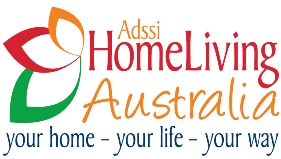
In addition to impromptu conversations about what employees have learned via the ORANGES program, methods of mindfulness and focus have also become a regular part of company culture.
“We’ve started doing mindfulness regularly at most team meetings,” Jenni explained about some additions they have made to their regular agenda. “We’ll have a few minutes using an app just to focus our minds on where we are.”
Perhaps one of the most important implementations is that ORANGES is now part of the company’s language.
“We use it in our everyday words,” said Jenni. “So, for example, if someone says something like, ‘Oh, everything’s going wrong today. What a shocking day I’m having. I can’t expect anything to work out.’ We’ll say something like, ‘Well, that’s not very ORANGES, is it?’”
And as if that weren’t already enough, the company’s intranet is badged with ORANGES, so that it also serves as a gentle reminder.
You can start fast, but it requires upkeep
The ORANGES program can work quickly. It’s implementable the day after an in-house training session. But it does require effort and focus to maintain, so that any positive gains don’t deteriorate over time.
Positivism requires upkeep. Negative thinking takes hold when you simply do nothing at all.
Jenni recommended committing to it and doing it properly.
“You don’t just set and forget,” she explained. “It’s something we’ve got to keep doing all the time. Like Work Health Safety, really, if you believe in it.”
What about the results?
Jenni hesitated to dive into measurable results because, as she pointed out, it’s hard for her to be objective.
“I think we have more energy now than we had before,” she said. “And so it’s hard for me to be objective, but people tell me anecdotally. People walk in and say ‘the atmosphere’s really lovely here’, or ‘all your staff seem really happy and pleased to be at work’.”
The staff surveys put this into numbers
Colin pointed out that, according to staff surveys, their numbers in 2016 in certain categories of job satisfaction were already good. Thanks to ORANGES, he says, those numbers have gone from good to great.
“We do our staff surveys using a model from a core unit called Your Voice,” he explains. “They said to us in 2016, ‘don’t expect anything better because these numbers are about the best anyone can achieve’. But in 2017 we bested those numbers. Ninety-nine percent of our staff believe in the mission and the values. Now that’s extraordinary.”
This level of personal investment is achieved not just from what ADSSI HomeLiving Australia does, but also the value that ORANGES has brought to that work. Colin explained how the Your Voice traffic-light system allows the business to gain insights quickly, and how impactful the change has been. The traffic-light system shows you what you need to work on, by providing indicators in orange or red.
For ADSSI, it was green across all of their staff sectors.
Colin talked about how rare that is, even in strongly value-driven organisations.
“In our last survey, we achieved green across all staff. The Your Voice project told me that is rare even in aged care. Even in the community sector.”
Referrals to Employee Assistance Programs have also dropped
Colin explained how they have seen such a reduction in the number of Employee Assistance Program that the EAP itself called to see if something was amiss.
“Our EAP referrals are down. Just a few weeks ago the provider rang me up and asked if we were using another provider because the numbers are dropping,” Colin laughed. “I actually said no we’re not, but what we’re doing is we’re getting more proactive. We’re getting ahead of people getting stressed or ill.”
What ADSSI recommends to you
The benefits seen by ADSSI HomeLiving Australia are obvious. But, as they rolled out the implementation of the ORANGES program gradually, so too do they recommend that you take your time.
Change, when most effective, goes from the top down.
“I’d say put yourself through the training first if you are someone making a decision on behalf of the organisation, so you have first-hand experience,” recommended Jenni. “Then you can be a champion of the training.”
Colin is quick to compliment Jenni’s leadership skills in this and other initiatives, which has led to a respect-fuelled culture at ADSSI.
“We have a fabulous CEO, and she sets the standard for civility and positive feeling. However I feel that Oranges given everyone else the official permission to follow suit. I think there’s a, what would you call it, a civility ground swell?”
That civility groundswell, Colin goes on, made it easier for employees to provide input into the direction of the company. It’s also made brainstorming sessions more engaging and enjoyable.
“People are more likely to speak freely and jump in with ideas and build on people’s ideas,” he says. “One of the tools that we’re struggling with is that when you’ve got an issue, everyone has to come up with ten ideas, ten solutions, no matter how crazy they are. The thinking is that even if someone has come up with something that’s totally impractical, totally off the wall, someone else will say, ‘Oh yeah, if we took that and matched it this way…’, and it gets the creative thinking going. Our problem solving now is much more creative and fun, and people value other people’s input much more.”
When should you think about doing ORANGES?
Colin offers the suggestion that the need for change is often self-evident. Even though making a change is rarely easy, the reward is worth the struggle. He says that if your staff are tired, or worn out, it’s time to bring in fresh tactics.
But he also warned against bringing in ORANGES to fix the unfixable, or for trying to make it fit if you’re not open-minded.
“If you’re closed and not open to new ideas — some of it is quite challenging! — it’s not for you.”
In the end, ADSSI, and its CEO, couldn’t recommend the ORANGES program highly enough.
“I would personally and professionally recommend the program to any organisation to improve staff engagement, and staff satisfaction,” says Jenni. “Ultimately, in a service driven business, this will improve your business and the quality of services to your clients. And I’m really glad that I’m part of the ORANGES initiative.”
You can find out if ORANGES is for you by attending the first public program in Adelaide, on 22-23 October 2018.
Places are limited! Click here for more information.

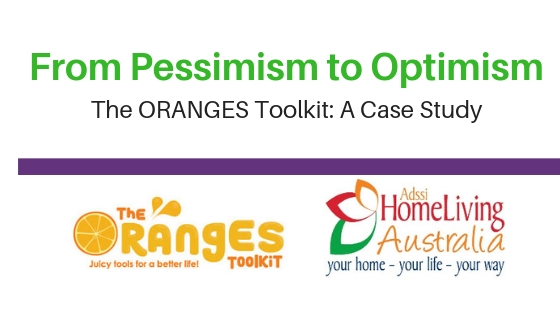
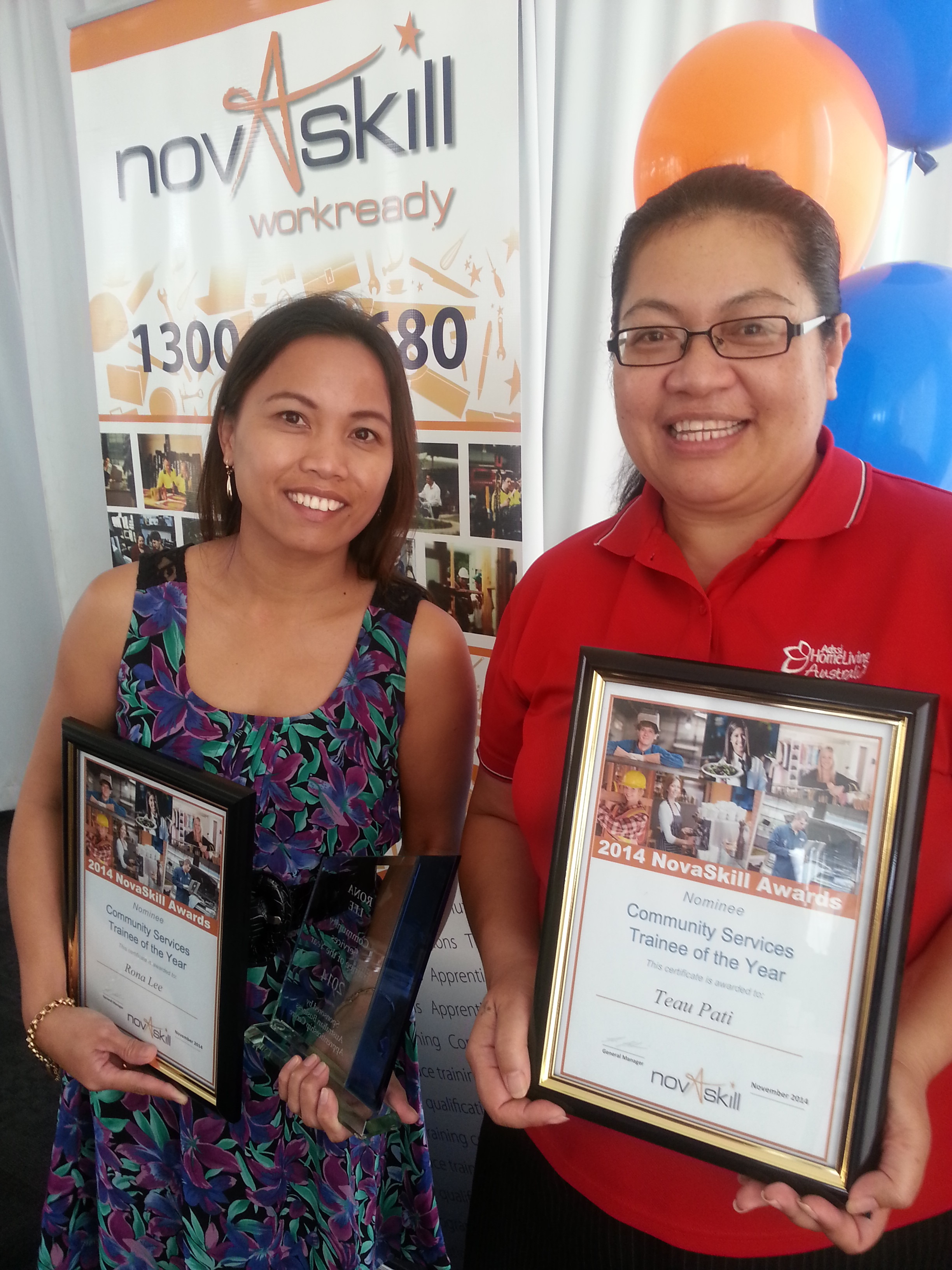
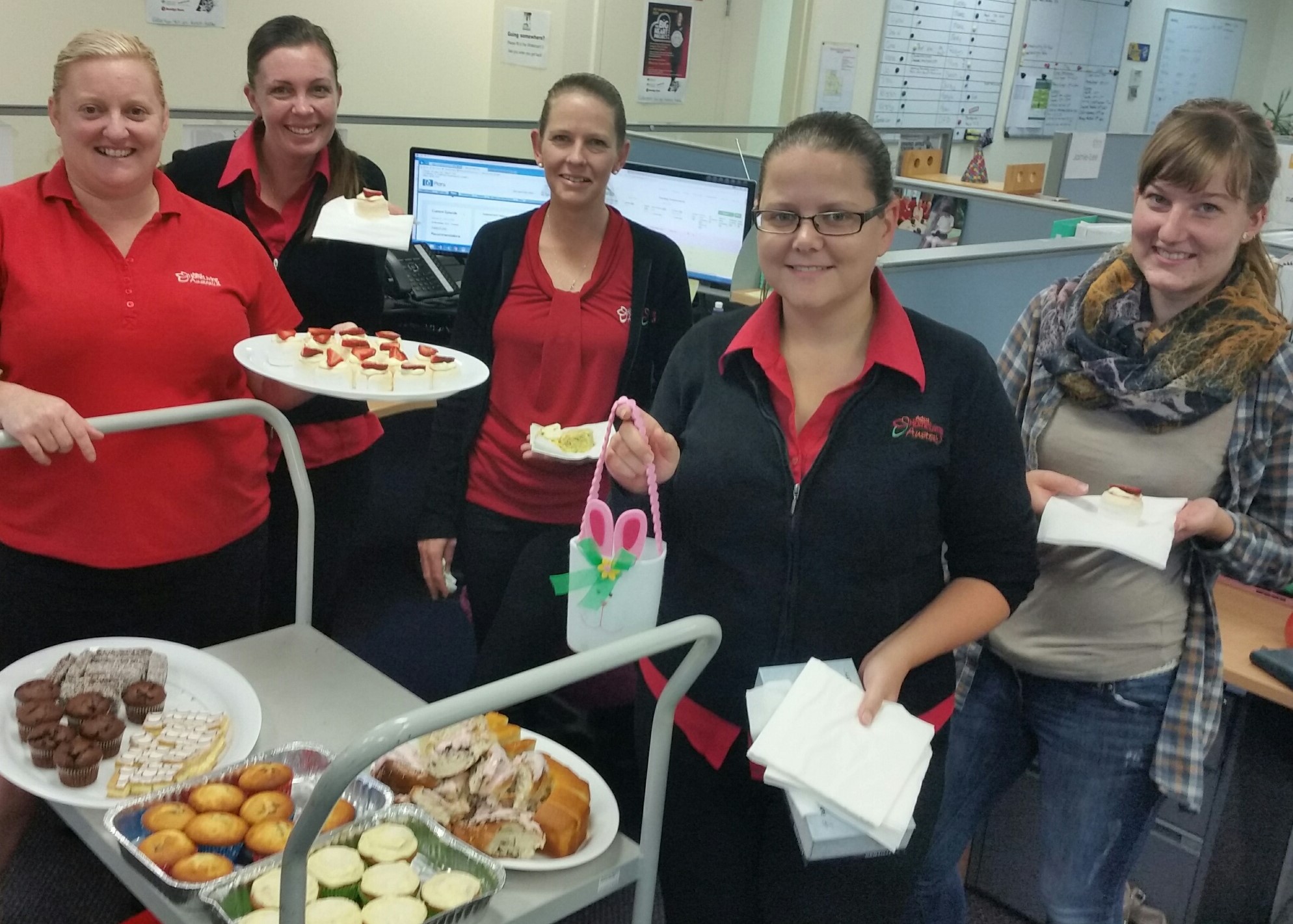
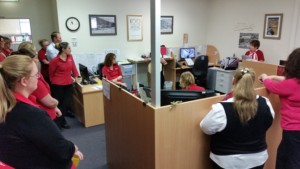
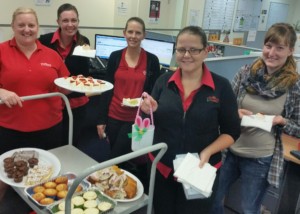
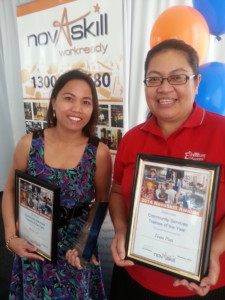
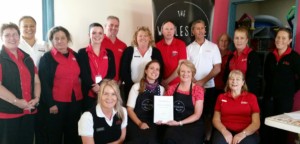
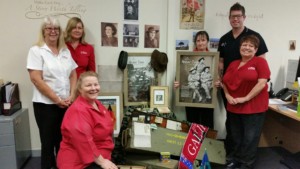
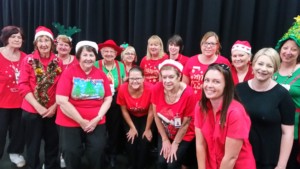
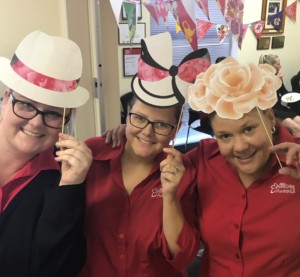


Leave A Comment